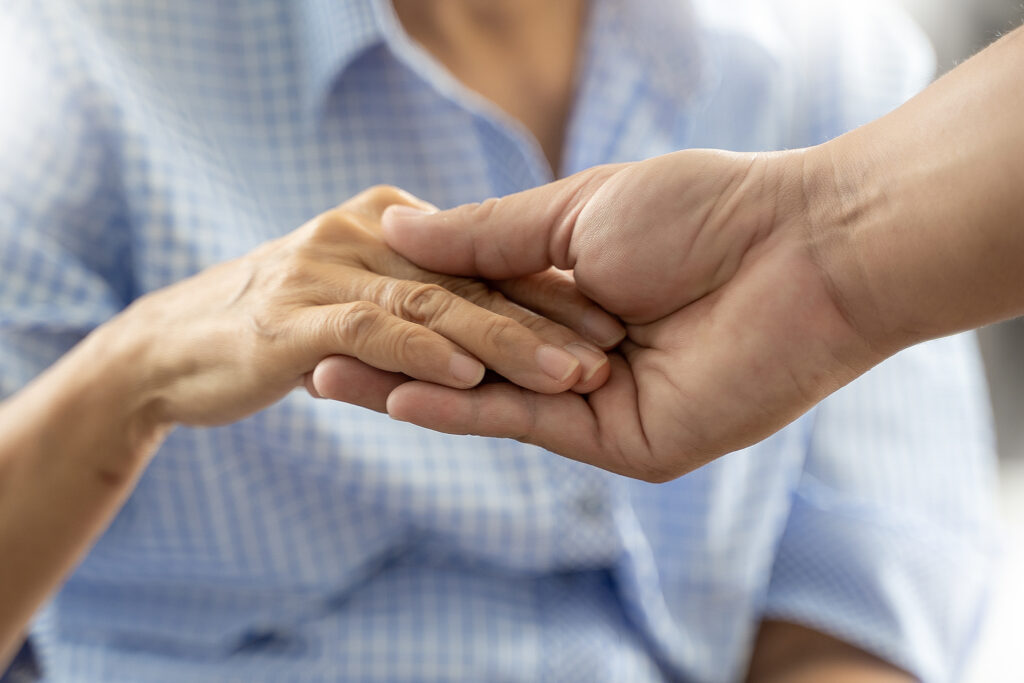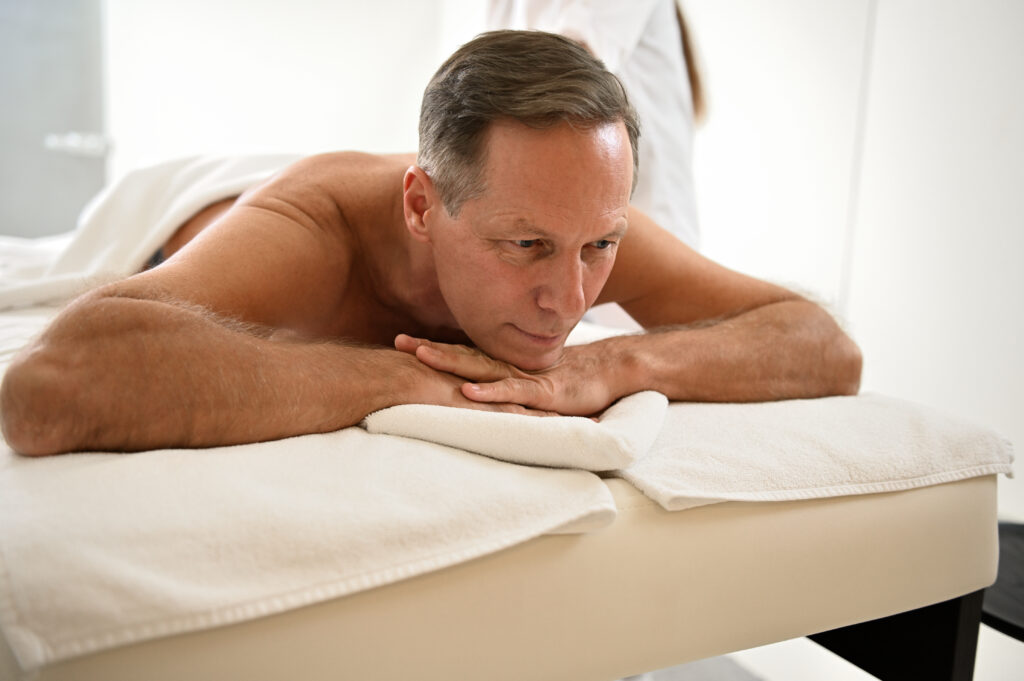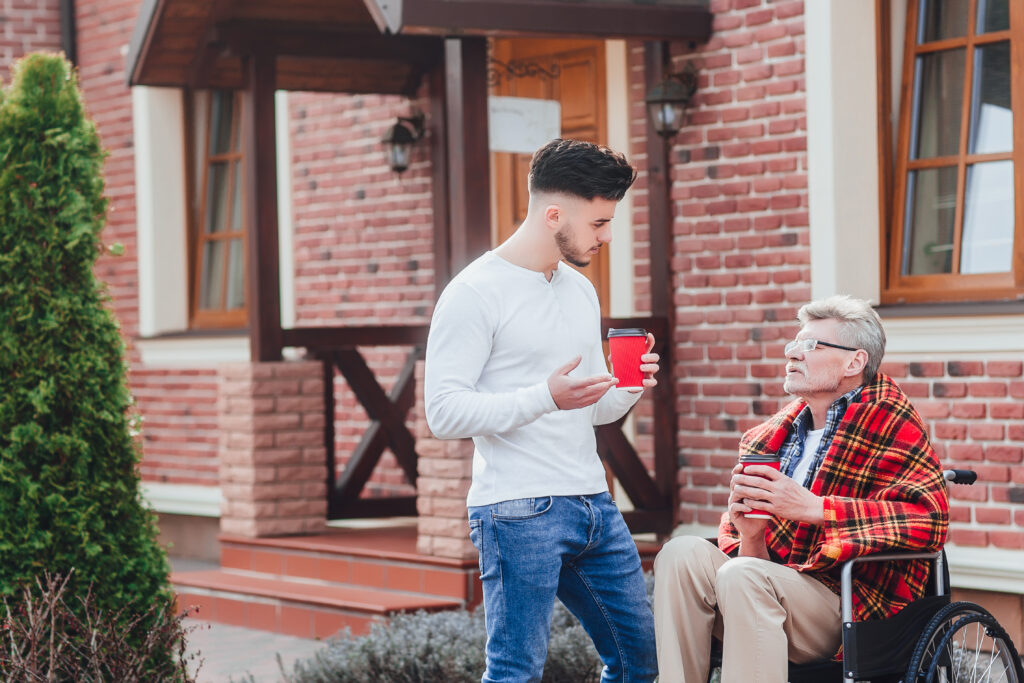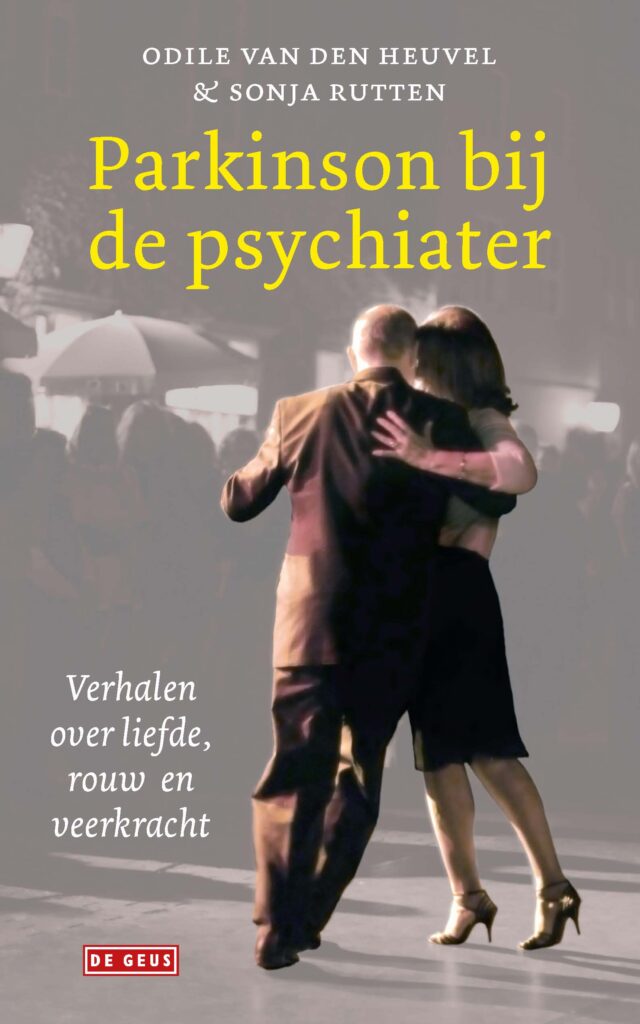Parkinson's disease is a brain disease that affects more than 55.000 Dutch people. Motor problems, such as tremors, stiffness and reduced movement are associated with depressive symptoms. There is currently no cure for Parkinson's disease. The treatment of Parkinson's consists of a combination of medicines, exercise and a healthy diet with the aim of reducing complaints and improving the quality of life.

Can massage help reduce Parkinson's symptoms?
Yes, based on comparative literature review It can be concluded that massage can also play a role in the treatment of Parkinson's disease. Different massage techniques can be used to reduce motor symptoms and psychological complaints associated with the disease. Massage for Parkinson's is both pleasurable and meaningful.
Twelve studies conducted between January 1970 and June 2019 were examined in more detail. Most studies show that massage induces relaxation in patients; stress hormones in the urine decreased in the group of people who received massage. For example, a full body massage significantly improves the quality of life. Non-motor symptoms, such as sleep disturbances, pain, fatigue, anxiety and depression decreased. Certain forms of massage also had a positive influence on motor symptoms, but further research should show whether massage can also be applied in clinical practice.

How great is the effectiveness of massage for such complaints?
A meta-analysis of massage therapy research (Moyer et al, 2004) led to the conclusion that massage therapy is very effective for stress reduction and that it is about as effective for the symptoms of anxiety and depression as the commonly used psychotherapy. The average participant in massage therapy is better off afterwards than 79% of the untreated comparable patients. There is also a significant but smaller difference (62%) between patients with/without massage therapy for pain complaints.
A small effect study by the Touch Institute from Florida (2002) shows specifically with massage to PwPs an improvement in daily functioning, an improved quality of sleep and a decrease in stress hormone levels.
What role does dopamine play in Parkinson's disease?
Due to the breakdown of brain cells as a result of Parkinson's, too little dopamine is produced. Dopamine ensures that nerve cells transmit messages. The substance does not work very well in Parkinson's patients, causing them to stiffen or vibrate. The lack of dopamine causes the striking movement disorders, but at the same time it is disastrous for your mood, for the drive in life. Dopamine makes you feel good when you eat, buy, win or have sex. Dopamine is well known to lead to addictions in certain amounts.
What psychological problems can someone with Parkinson's face?
Parkinson's is accompanied by the well-known motor problems such as tremors, but also with incontinence, erectile dysfunction, excessively falling blood pressure, smell and sleeping problems. And Parkinson's patients often also experience cognitive problems, such as planning, keeping an overview and multitasking. Little attention is paid to other psychiatric symptoms, for which patients are often more embarrassed than for trembling. Think of:
- gloom, depression
- Anxiety disorders, including for loss of control
- Hallucinations
- Panic attacks
- Impulse control disorder addiction.

When can coaching be useful for Parkinson's patients?
Help a coach to put your feelings into words and to discuss your dilemmas, problems and worries. Parkinson's, for example, often leads to social isolation, whereby coaching can help to break through that isolation. A coach can also motivate you to keep moving and exercising a lot, which is essential for Parkinson's patients. In case of serious psychiatric complaints, such as certain forms of addiction that can become serious with Parkinson's medication, I usually refer to specialist psychiatry. When dealing with such complex problems, people often opt for an interdisciplinary approach. In addition to the psychiatrist, a behavioral psychologist or coach can make a useful addition to putting a person's behavior and life in order.
What are Impulse Control Disorders?
Impulse control disorders are common in PwPs. This disorder can lead to addiction and is often hidden, because recognizing that you are no longer in control of your own behavior comes with a lot of shame. In the conversations I have with clients, there is room for the expression of all feelings and emotions. In addition, all kinds of addiction, partly as a result of disinhibition, come to light. Many people with Parkinson's suffer from this. Disinhibition is a classic side effect of Parkinson's disease, with one in three patients not having proper impulse control.
An impulse control disorder can turn life upside down in a short time, partly due to the spending pattern. One gambles, the other watches porn or calls sex lines. Still others start eating, buying or gaming. Sometimes there is punding, where patients go on endlessly with seemingly pointless activities such as sorting objects or dismantling devices. With these forms of addiction you become dependent on the dopamine that is released in your body during certain actions.

Medication to ensure that the substance dopamine works better usually plays a major role in disinhibition. Fifteen to 35% of PwPs develop an impulse control disorder after starting dopaminergic medication. The medication is given to combat the motor complaints of the disease, among other things. While replenishing the dopamine deficit, this can give so much drive that patients can no longer find the brake. Such a treatment in which dopamine is stimulated leads to a three and a half times greater risk of addictions or compulsive behaviour. With some pills, the so-called dopamine agonists, the risk is greater than with other variants. Read more about this on the website of the Parkinson's Association.
Read more
The book "Parkinson's at the psychiatrist" contains twenty colorful portraits of Parkinson's patients who, during the consultation hours, talk about terrifiedness in the street, whole days listless on the couch, and other gripping and at the same time light-hearted stories that show that seeking help pays off. And that patients should preferably not be held back by shame and stigma.
Parkinson's at the psychiatrist, stories about love, grief and resilience. Odile van den Heuvel and Sonja Rutten. The Geus.


I have heard very positive stories about your treatments, a friend has benefited a lot from them. I understand that you are in Brussels every now and then. That is why I would like to get in touch for possible treatment as a Parkinson's patient in the Bruges-Knokke or Brussels Dilbeek region. Thanks in advance!
G
gerard.duyck@gmail.com